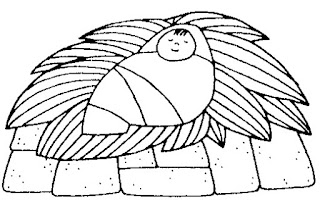John 1:1-14, Isaiah 7:14
Our study of the Biblical account of the birth of our Savior should not be seasonal. Our thankfulness for His unspeakable gift should permeate our life throughout the entire year. We should live our entire life in the light of the glorious truths that normally only momentarily illuminate a few days of the Christian calendar each year. The story of the incarnation of God into the flesh of man is a vital foundation stone of the very gospel of Jesus Christ and should undergird our faith year round.
Two great philosophers who pre-date the birth of Jesus had this to say about the necessity of the incarnation, "God will never be known unless He reveals Himself in human form." "Oh, that someone would arise, man or god, to show us God." (Socrates) You do not have to be an intellectual to recognize the logic of the philosophers' argument. The proof is always in the pudding. The ultimate illustration is in the reality.
When God chose to become man He put paid to the long awaited proposition prophesied by the Old Testament prophets. The concept that Isaiah posited when he said, "Therefore the Lord Himself shall give you a sign: Behold a virgin shall conceive, and bear a son, and shall call his name, Immanuel (God with us)"
When God chose to come in the person of the Lord Jesus Christ to flesh out His eternal purpose of redemption for those who would be eternal sons of God, He not only personified an absolute selfless love, but He demonstrated the ultimate in communicating such love to those who were to be the objects of it. Can you imagine the infinite God of a limitless universe, condescending to imprison His infinite being in the finite flesh of man, on a tiny ball of mud, in a far off corner of a very mundane sort of solar system, in a less than spectacular galaxy that man calls the Milky Way?
Why would He do such an unlikely deed? Evidently, in order to say to His rebellious and ungrateful creature, man, "I love you with an infinite love and will make it possible for you to love me with such a love in return! In order to give you the privilege and capacity to do so, I am not only willing to live in your dirty, stinking, sinful and rebellious environment, but to die unjustly at your hands that you might, in turn, mercifully live forever in an environment fit for a Child of the King!"
If Jesus had not been born of the virgin Mary, God incarnate in the flesh, there would be no gospel, salvation, forgiveness or life eternal. We would be yet without Got, without Christ, and eternally lost in a dark and sin cursed earth. Is it any wonder the apostle Paul was moved to exclaim, ''Thanks be unto God for His unspeakable gift" (II Cor. 9:15)

